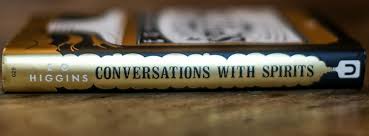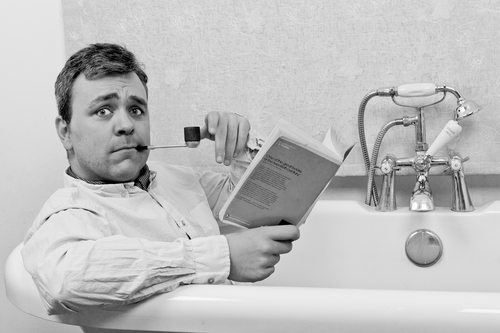
I met Edward Higgins and his lovely wife Katie whilst I was waiting nervously at the side of the stage of the Jura Unbound event at the Edinburgh International Book Festival. Talking with them gave me the courage to ascend the stage and do my reading, part of an evening of spooky events inspired by Edward’s first novel ‘Conversations with Spirits’.
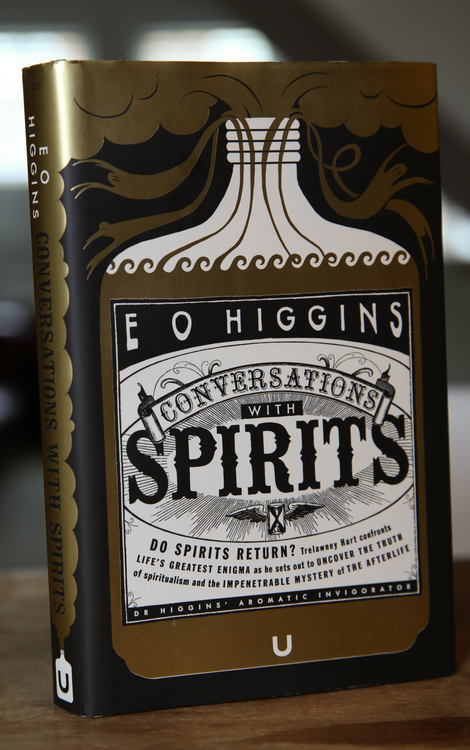
I’ve since read the book and absolutely loved it, a Victorian mystery story that plays with the era’s obsession with spiritualism and introduces a great new character in detective fiction, the gloriously drunken and yet touchingly grief-stricken Trelawney Hart. Also present is Arthur Conan Doyle and other real-life personalities of the era, yet perhaps my favourite character was Billy, who becomes Hart’s sidekick and friend, and was written so lightly that he felt like a real person to this reader.
I’ve asked Edward a few questions about his super book, which has been nominated for the First Book Award and you can vote for it here:
https://www.edbookfest.co.uk/the-festival/first-book-award/vote?book=5156
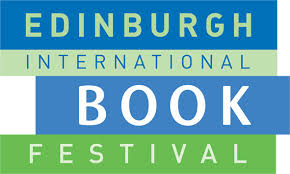
Where, when and how did this book begin in your mind? Also, where did your interest in Victorian spiritualism come from?
I’m not sure really. I have always been very interested in the paranormal.
I remember being gifted the Usborne Guide to the Supernatural World when I was about eight – and it was from there that I first learnt about the ‘ghost hunter’ Harry Price, who features in Conversations with Spirits.
About the same time, I had my first foray into the world of writing, and produced a – er – ‘pamphlet’ on the most notorious crime of the Victorian period – the Jack the Ripper killings.
It was a fairly derivative piece, mind you – cobbled together from two different Encyclopedia entries and then badly-typed up on my mum’s Olivetti. (My life hasn’t moved on much…)
I suppose, really, Conversations with Spirits grew out of my fascination with the unexplained, and with my love of classic ghost stories, Victorian magic and alcohol. Without giving too much away.
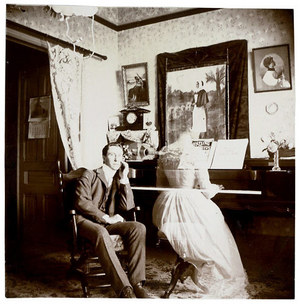
Could you take us through your historical research process: how it begins, how you organise it and how you incorporate research into the writing of the novel itself?
My research mainly involved reading a lot of Victorian and Edwardian novels – and then trying to appropriate a suitable voice and style of writing to give the book some kind of verisimilitude.
Since a large amount of the book is based in Broadstairs in Kent, I probably cheated a bit too…
Save from having a few less Lyons’s Corner House Tea Rooms – and perhaps a few more Starbucks – the seaside town has barely changed in the last 150 years.
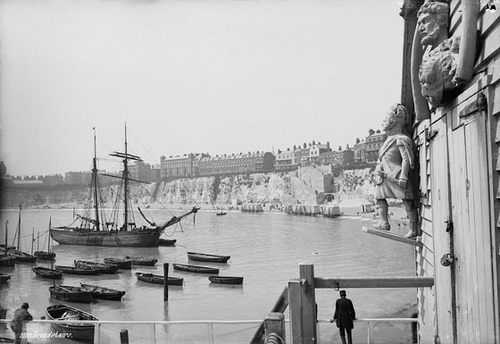
This novel has a clever and tricksy plot. Without any spoilers, can you explain some of the process of how you worked out the intricacies of your plot i.e. what methods you use to plan your narrative?
Nothing was really planned – so I’m very pleased it worked.
At one point, quite early on, I did try to map the story out chapter-by-chapter – but, thinking about it now, this was probably just another form of procrastination.
Looking at the chapters as plotted now, it actually looks nothing like the finished novel – and, indeed, has a markedly different ending.
I did, however, spend about two and half years fretting constantly about the book…
It probably took about eighteen months just to work that there’s a very good reason why no one ever writes mystery novels in the first person. And that’s because it’s basically impossible.
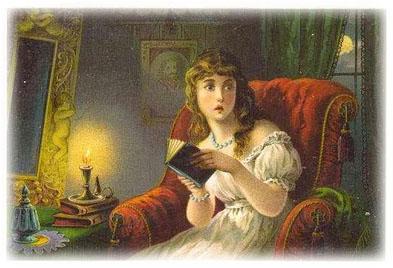
The book was published by Unbound, a somewhat unconventional approach to publishing. Can you explain how the Unbound publication process works?
Unbound are the first publishers to use a crowd-funding model – which is basically an updated version of ‘subscription publishing’, popular in the eighteenth century.
It’s a fairly simple process. Authors pitch an idea, and readers can choose whether or not to back it. The more they support a project, the greater the ‘rewards’.
Since it’s true that traditional publishers are now quietly pulping around 77-million unsold books each year, it probably makes sense to make the commissioning process a bit more forward-thinking and democratic.
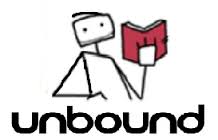
Do you envisage that the book might have a sequel, perhaps being the first in a series? If not, can you share something of what you’re working on next?
Well, when I finished Conversations with Spirits, I started writing another book that was quite a departure. But, after a meeting with Unbound, it seems they were quite keen to see a sequel. So, I am now currently working on that. I can’t say too much about it – other than it’s moved away from spiritualism – and into a world of esoteric societies and Black Magic…
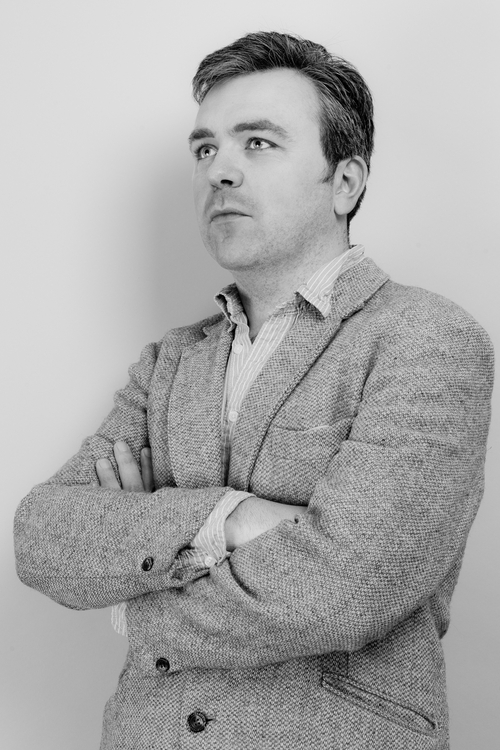
Watch a fabulous video about the book and also about the brilliant Jottify website on Unbound’s site here:
http://unbound.co.uk/books/conversations-with-spirits
and check out Jottify here, where you can share your writing and discover new writers:

Thanks very much to Edward for his answers and I’m delighted to hear that there will be another Trelawney Hart novel coming soon…
